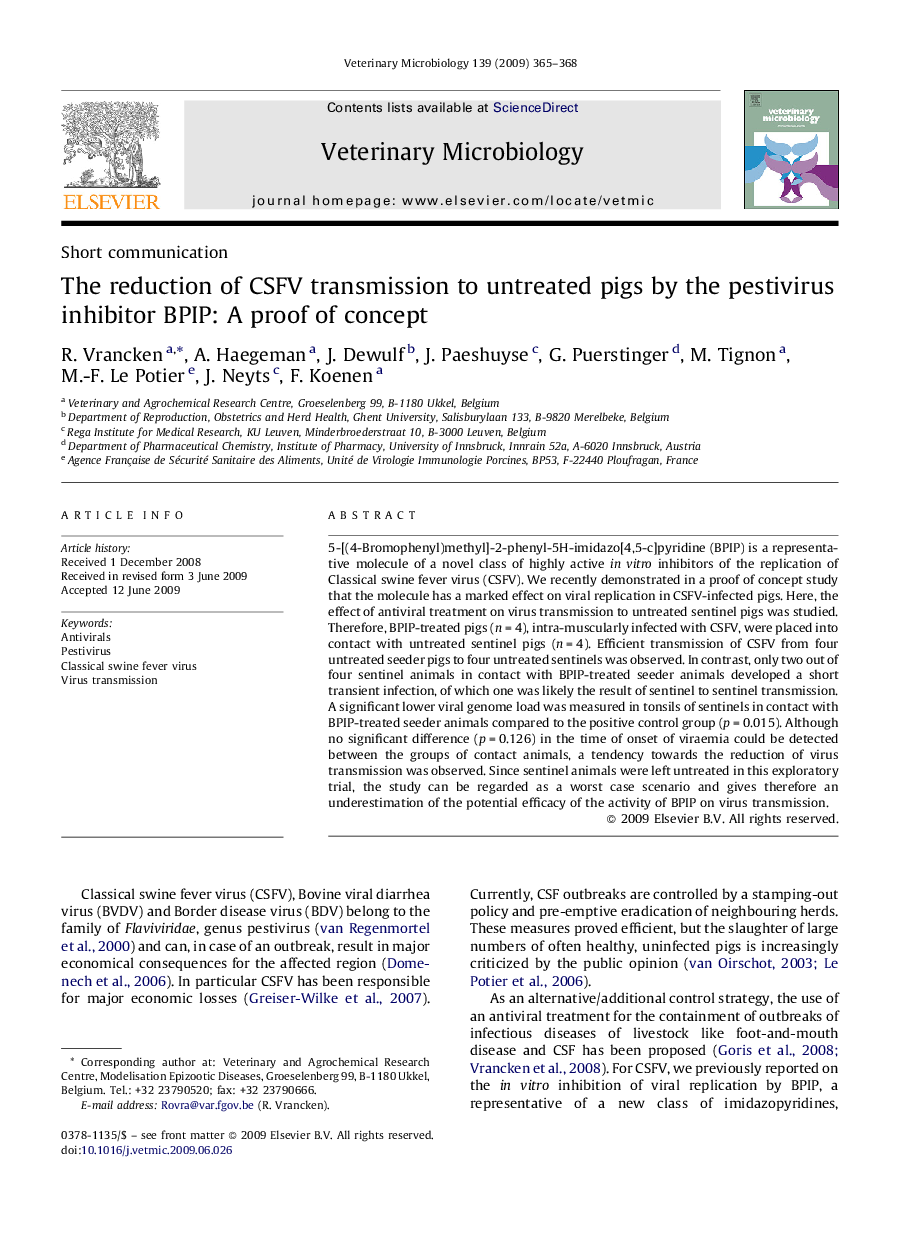| Article ID | Journal | Published Year | Pages | File Type |
|---|---|---|---|---|
| 5801904 | Veterinary Microbiology | 2009 | 4 Pages |
5-[(4-Bromophenyl)methyl]-2-phenyl-5H-imidazo[4,5-c]pyridine (BPIP) is a representative molecule of a novel class of highly active in vitro inhibitors of the replication of Classical swine fever virus (CSFV). We recently demonstrated in a proof of concept study that the molecule has a marked effect on viral replication in CSFV-infected pigs. Here, the effect of antiviral treatment on virus transmission to untreated sentinel pigs was studied. Therefore, BPIP-treated pigs (n = 4), intra-muscularly infected with CSFV, were placed into contact with untreated sentinel pigs (n = 4). Efficient transmission of CSFV from four untreated seeder pigs to four untreated sentinels was observed. In contrast, only two out of four sentinel animals in contact with BPIP-treated seeder animals developed a short transient infection, of which one was likely the result of sentinel to sentinel transmission. A significant lower viral genome load was measured in tonsils of sentinels in contact with BPIP-treated seeder animals compared to the positive control group (p = 0.015). Although no significant difference (p = 0.126) in the time of onset of viraemia could be detected between the groups of contact animals, a tendency towards the reduction of virus transmission was observed. Since sentinel animals were left untreated in this exploratory trial, the study can be regarded as a worst case scenario and gives therefore an underestimation of the potential efficacy of the activity of BPIP on virus transmission.
